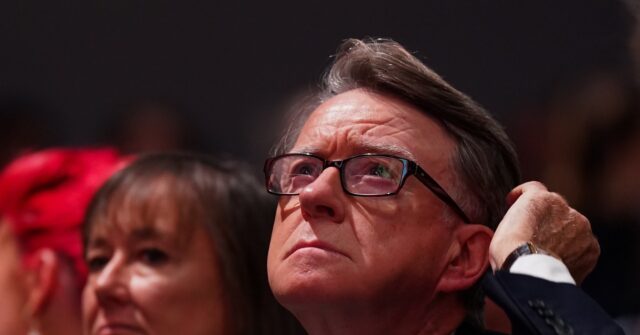Prime Minister Sir Keir Starmer is reportedly set to appoint Lord Peter Mandelson as the next British Ambassador to the United States. Known as the “Prince of Darkness” and recognized as one of the first spin doctors for his role as communications director for the Labour Party, Mandelson’s appointment is seen as a strategic move to enhance the relationship between Starmer’s government and the incoming Trump administration. Mandelson has been out of government for 14 years and will succeed Dame Karen Pierce, the current U.S. Ambassador, following her departure in January. He brings substantial experience from his previous cabinet roles under Prime Ministers Gordon Brown and Tony Blair, particularly as a European commissioner for trade—an area likely to be a priority in discussions with the new Trump administration.
The significance of this appointment lies in the fact that it marks the first time in nearly fifty years that a political figure has held this ambassadorial position, as it has traditionally been filled by career diplomats. A government source emphasized the importance of this choice, indicating that it reflects the UK’s commitment to strengthening its relationship with the Trump administration. They described Mandelson as possessing unmatched political and policy experience, especially relating to crucial issues such as trade. His expertise is seen as vital for representing the UK’s economic and security interests in the U.S., particularly during a time of anticipated shifts in trade policies.
With President-Elect Trump being a staunch advocate for the “special relationship” between the UK and the U.S., the dynamics of this relationship may yet prove complex. Previously, key members of Starmer’s administration, including Foreign Secretary David Lammy, have openly criticized Trump, creating a challenging backdrop for Mandelson’s role as ambassador. Although Lammy has attempted to engage positively with Trump’s circle, he has not retracted statements he made branding Trump in a derogatory light, which could complicate diplomatic efforts. The history of tensions between Labour representatives and the Trump campaign, exemplified by Labour’s involvement in the unsuccessful presidential campaign of Kamala Harris, adds further challenges to Mandelson’s task.
Mandelson faces the formidable challenge of navigating these difficulties while fostering a productive relationship with the incoming administration. Despite his background in the far-left wing of the Labour Party, he has emerged as a voice for establishing a more conciliatory approach towards Trump, suggesting that the government should capitalize on established connections with prominent figures, including Trump allies such as Elon Musk and UK political figure Nigel Farage. Mandelson’s calls for overcoming partisan divides signal his desire to foster collaboration for the greater national interest, particularly regarding transatlantic ties that could benefit the UK’s political and economic landscape.
In advocating for a more united front with Trump and his allies, Mandelson’s remarks present him as a pragmatic figure, willing to engage with a spectrum of political opinions to further the UK’s interests. His intention to utilize Farage as a bridge to communicate effectively with Trump highlights an understanding of the complex nature of modern political alliances. Mandelson’s perspective reflects a broader strategic vision that prioritizes national interest over party loyalty, which might help win over sceptics of the Labour Party’s traditional stance towards Trump.
As Mandelson prepares to take on this high-stakes role, his unique position and experience could prove invaluable in shaping a new chapter in UK-U.S. relations. The upcoming appointment underscores a shifting political landscape where adaptability and diplomatic skill are crucial. While Mandelson’s history may raise eyebrows among critics, it could also serve as a critical asset, particularly in fostering dialogue between the UK and the new administration in Washington. His success will ultimately depend on his ability to balance past criticisms with current realities, maintain the Labour Party’s ethos, and leverage his considerable political acumen to engage with a often-divisive political figure in Donald Trump.

